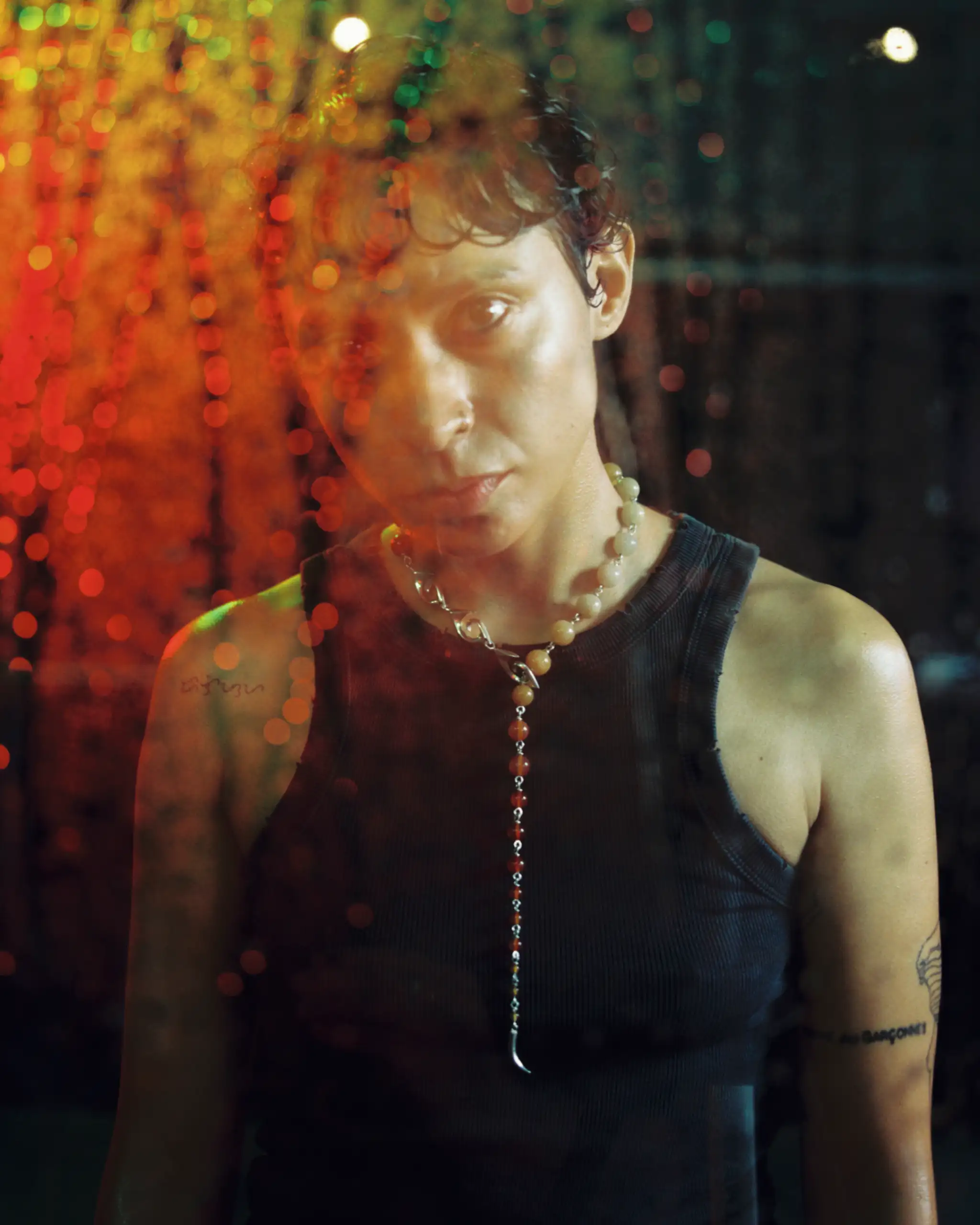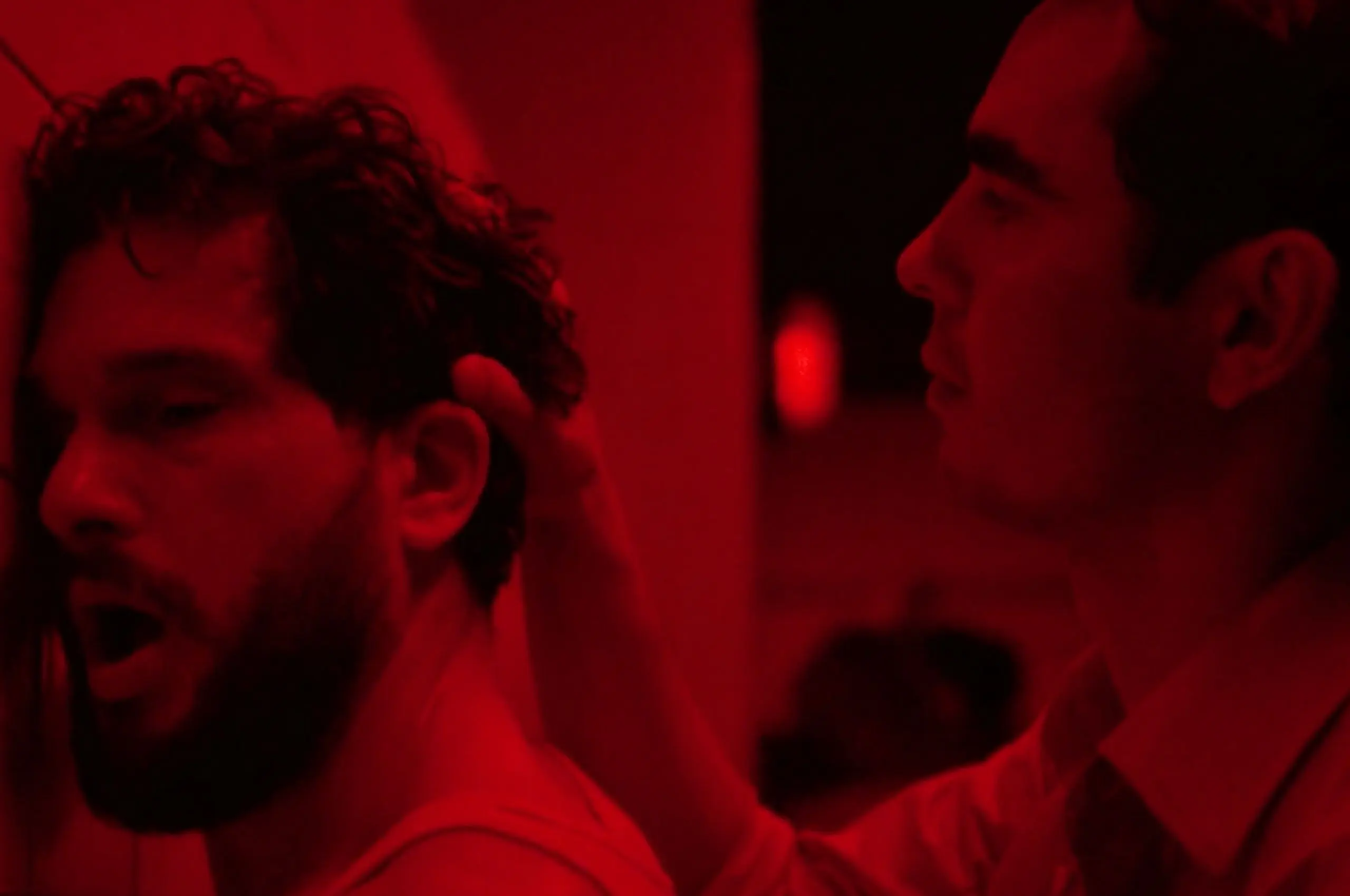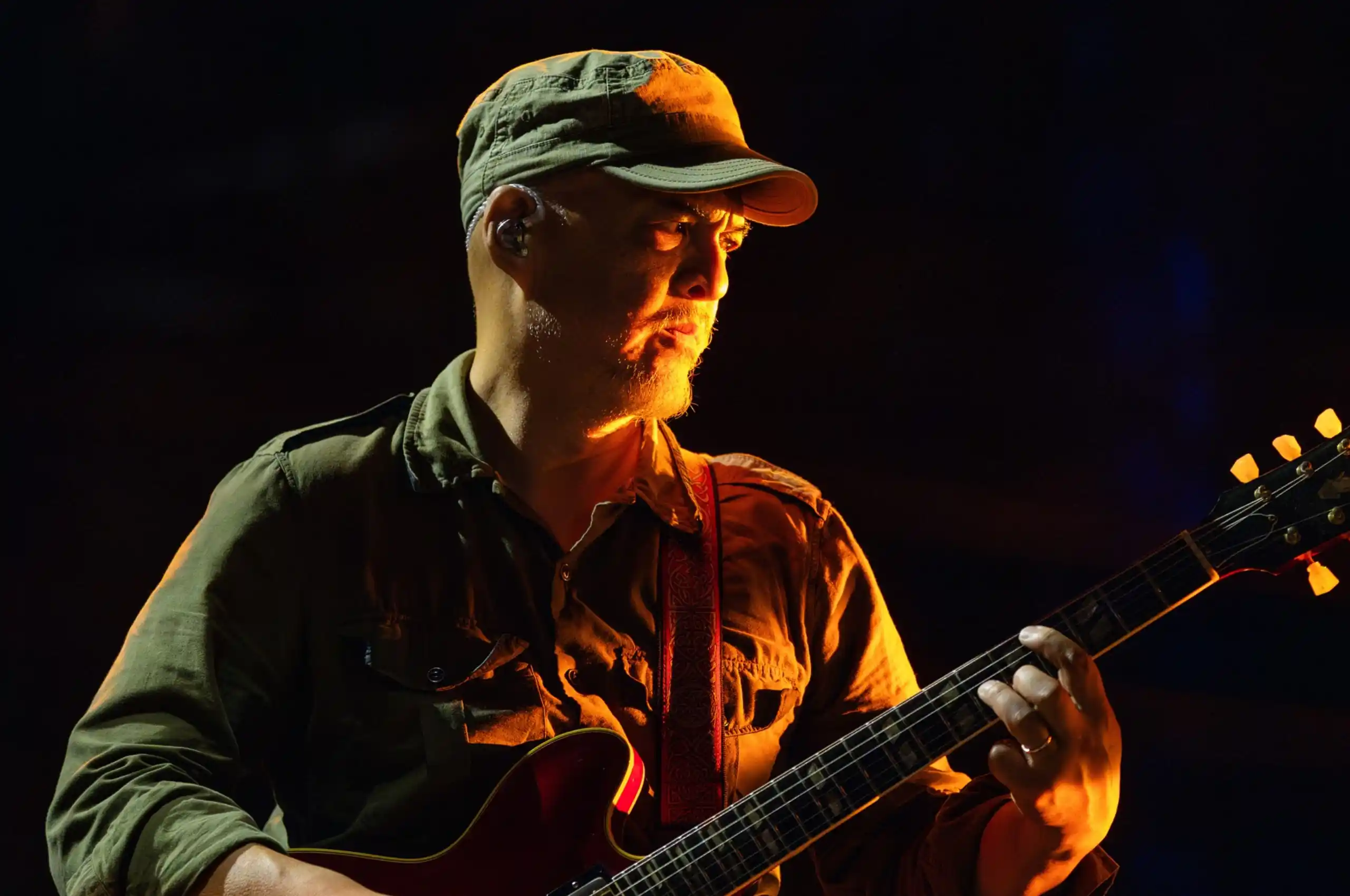Kraftwerk Berlin, in the Mitte district’s Köpenicker Street, is a building complex that buzzes with history. Inside the former power station is Hard Wax, a legendary record store considered a sanctuary for the world’s electronic music aficionados. Having first opened in Kreuzberg’s Reichenberger Street, Hard Wax has played a key role in introducing Chicago house, Detroit techno, and Jamaican dub and reggae to European audiences, especially after the fall of the Berlin Wall in 1989. In their space in Kraftwerk, which they moved to in 2023, they continue to serve as ground zero for cutting-edge electronic music in the city.
Like many DJs that stood behind its counters, Jesse G has, for nearly six years, traced her fingers on the grooves of countless vinyl records, absorbing sounds that would later shape her sonic identity. Her energetic, genre-spanning sets blend deep, trippy textures with groovy and percussive techno, all underpinned by the rhythmic sophistication of bass music. Her journey with Hard Wax has taken her from record store clerk to resident DJ at some of Berlin’s most hallowed club institutions, including Tresor, RSO Berlin, and Berghain.
Jesse grew up in Wiesbaden, one of Germany’s oldest spa towns, where she navigated the complexities of being the child of Davaoeño and Sicilian immigrants. This experience fundamentally shaped her relationship with music and community. “Music was used as a common language for everyone in our house,” she tells Rolling Stone Philippines during an online conversation from Bangkok, where she was playing a show. “[Music was also a] way to communicate with a common language, since there was not one mother language that anybody shared.”
This dual function of music as both communicative tool and cultural anchor became the foundation upon which Jesse built her career as a DJ. The traditional Filipino folk, italo disco, and rap music that filled her childhood home represented a way for her parents to navigate life in a new country. “I would also say music was also a way for my parents to connect with their cultures, being away from home,” she says.
Wiesbaden’s affluent reputation stood in stark contrast to the gritty streets of Berlin. The literal distance between these two German cities is also considerable, but figuratively, they’re just as far apart in terms of musical access and opportunity. This meant that, for Jesse, every trip to a record store became an event, each discovery precious and hard earned.
“I wasn’t growing up in an environment where I could easily go to a record store if I wanted to,” she says, noting how she was introduced to electronic music by sifting through crates in record stores, often without guidance. “You’re just in this chaos of music, and you need to sort it for yourself,” she says.
This self-education was accelerated by her tenure at Hard Wax, which placed her at the nexus of Berlin’s electronic music community under the mentorship of Mark Ernestus, the store’s owner and co-founder of the legendary dub techno duo Basic Channel. Ernestnus and his Basic Channel partner-producer, Moritz von Oswald, defined an entire philosophy of production, aesthetics, and distribution of records, which continues to ripple through electronic music worldwide. Working alongside seasoned selectors and producers, she has built a career out of connecting the dots between music cultures.
“It’s quite inspiring to not be in clubs regularly and be influenced by the club sets of other artists, but instead to have this time and kind of have an uninfluenced mindset to also think outside of a club context,” she tells music blog Quarantune.
Back to the Roots

Yet, for all her technical and theoretical knowledge of electronic music, she remains socially aware of techno’s political dimensions and cultural origins. Deeply rooted in afrofuturism, techno was envisioned to be forward thinking; it treated the machine as an extension of the body, the sequencer as a tool for self-expression. Pioneering Detroit techno producer Derrick May once described the genre as being akin to “George Clinton and Kraftwerk stuck in an elevator,” its repetition, abstraction, and synthetic timbres mirroring the hum of a factory floor and the whirring of imagined spaceships.
For Jesse, the genre’s birth in Black, working-class communities represents not just historical context, but an ongoing responsibility. At Hard Wax, her work involves sourcing and curating sections dedicated to music from the Global South which, given its geographic proximity from Germany, comes with its own practical challenges. Moreover, her perspective as a mixed-race artist in Berlin’s predominantly white techno scene carries weight, challenging assumptions of who gets to define the genre’s present and future.
“You can just connect [politics] to where techno music is coming from,” she says, noting how disparities in representation reflect broader structural barriers in the global music industry. “[Techno] is not only a genre [of] resistance, but the art of DJing is something of [an act of resistance as well.]”
When asked about her Filipino heritage, she says it continues to subtly influence her musical sensibilities. “Filipino culture, to me, is very warm, but also very playful and fun,” she says. “I would say it definitely shows in the style and sometimes sound I play. Maybe music wise, it doesn’t necessarily show in my techno sets, but I really like cheesy music in general.”
On October 18, Jesse is set to make her homecoming debut in the Philippines for Heavy Mental Audio, a club night in Makati’s Apotheka nightclub in Poblacion. As she prepares to take the decks, she carries with her not just the technical knowledge acquired through years in Berlin, but the early lessons of her childhood home, where music served as common language. Her journey testifies to cultural hybridity, and where the relentless pursuit of one’s sound can take you.







